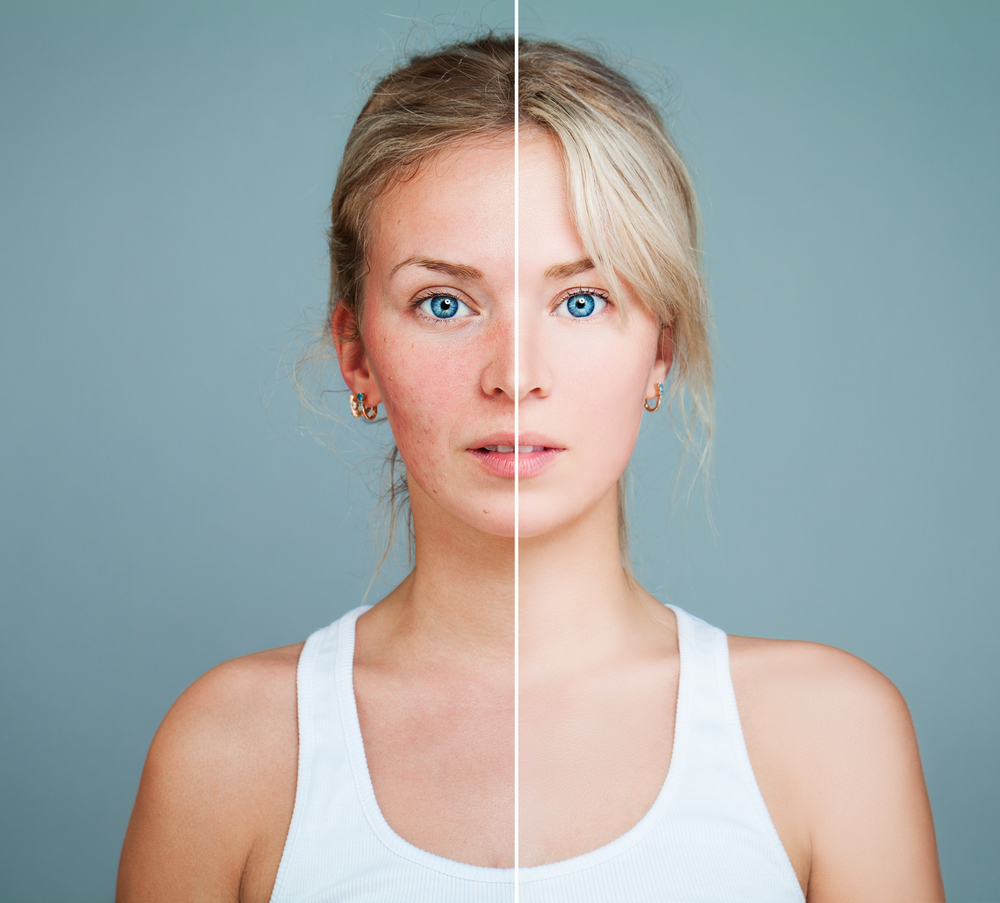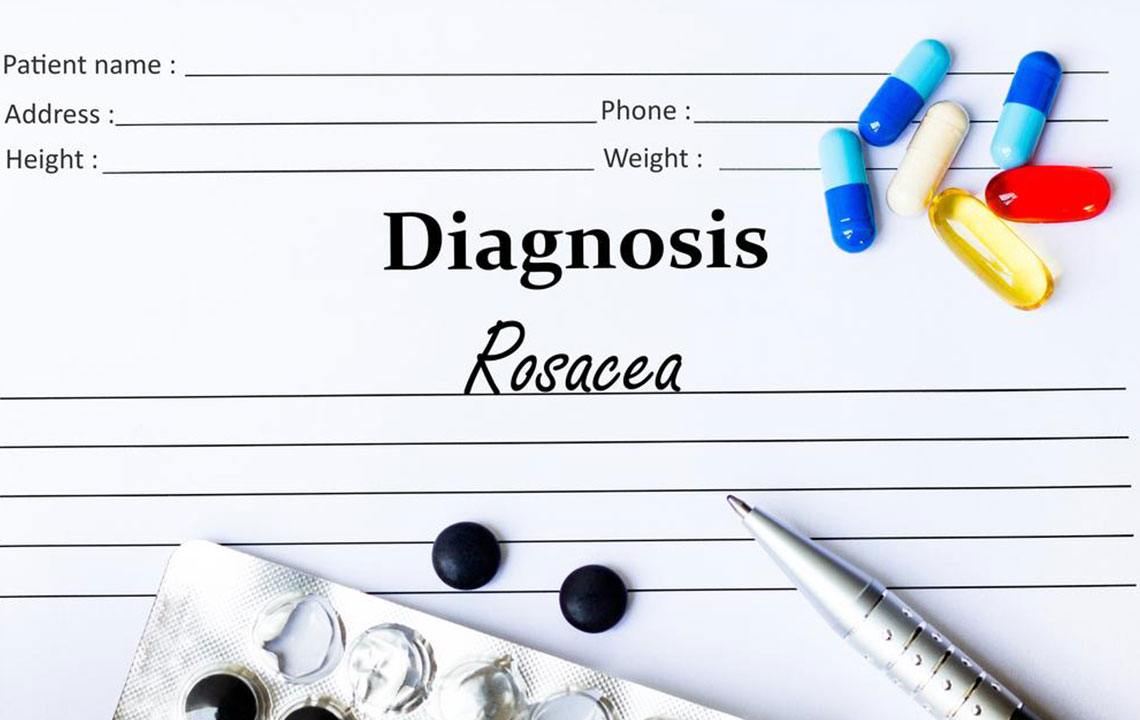Comprehensive Guide to Effectively Managing Rosacea and Achieving Clearer Skin
This comprehensive guide offers valuable insights into managing rosacea effectively. It covers causes, symptoms, and various treatment options, including medications, lifestyle tips, natural remedies, and laser therapies. Early intervention and personalized care are emphasized for optimal skin health, helping individuals control symptoms and improve their quality of life. Whether you're experiencing mild redness or more severe manifestations, this detailed resource provides practical advice to help you manage rosacea comprehensively and maintain healthier skin.

Understanding and Effectively Treating Rosacea
Rosacea is a chronic skin condition that primarily affects adults over the age of 30. It is most common among individuals with fair skin types and sensitive skin, but anyone can develop it. The condition manifests as persistent facial redness and can significantly impact self-esteem and quality of life if left untreated. Recognizing the signs early and implementing effective management strategies are key to controlling outbreaks and preventing progression to more severe symptoms like visible blood vessels, pustules, swelling, or even a bulbous nose, which is characteristic of advanced rosacea. This comprehensive guide aims to provide a detailed understanding of rosacea, its causes, symptoms, and the most effective treatment options to help sufferers maintain healthier, clearer skin.
Understanding the Causes of Rosacea
Rosacea results from a complex interplay of genetic, environmental, and lifestyle factors that lead to abnormal skin inflammation and vascular changes. It is believed that individuals with a family history of rosacea or associated skin conditions are more susceptible. The condition can be triggered or exacerbated by various external factors such as excessive sun exposure, which damages the skin and blood vessels, causing dilation and redness. Certain medications that dilate blood vessels or cause skin irritation can also contribute to rosacea development. Additionally, lifestyle choices like high alcohol consumption, caffeine intake, spicy foods, and exposure to hot or humid environments can trigger flare-ups. Stress and emotional upheaval are also recognized as significant contributing factors that can worsen symptoms. Moreover, some cosmetic products with harsh chemicals or fragrances may irritate sensitive skin, triggering or worsening rosacea outbreaks.
Understanding these causes helps in adopting preventive measures to minimize triggers and manage the condition effectively.
Recognizing the Signs and Symptoms of Rosacea
Frequent redness or flushing: One of the earliest signs, often triggered by heat, cold, spicy foods, or stress, leading to sudden or persistent redness.
Persistent facial redness: Long-lasting redness that resembles a sunburn or blushing, often on the cheeks, nose, chin, or forehead.
Small bumps and pimples: Similar to acne but typically devoid of blackheads, these may be inflamed and accompanied by a burning sensation.
Visible blood vessels: Tiny, broken blood vessels known as telangiectasia, often seen on the cheeks and nose.
Ocular rosacea: Red, watery, and inflamed eyes, which can cause discomfort, dryness, and visual disturbances.
Dryness and skin irritation: A feeling of tightness, roughness, and redness on affected areas.
Red patches and swelling: Raised areas of inflammation that can sometimes mimic eczema or dermatitis.
Effective Management and Treatment Options for Rosacea
Medication approaches: Dermatologists typically prescribe oral antibiotics such as doxycycline or minocycline, which help reduce inflammation and bacterial activity. Topical treatments like metronidazole, azelaic acid, or ivermectin can be effective for controlling redness and bumps. For ocular rosacea, eye drops or oral antibiotics may be recommended to manage symptoms and prevent complications.
Skincare and Lifestyle Tips: Lifestyle modifications are crucial in managing rosacea. Avoid known triggers such as spicy foods, hot drinks, alcohol, and caffeine. Minimize stress through relaxation techniques like meditation or yoga. Use gentle, fragrance-free skin cleansers and avoid vigorous scrubbing. Always apply a broad-spectrum sunscreen daily to protect sensitive skin from UV damage. Incorporate natural, soothing skincare products like gentle moisturizers containing ceramides or hyaluronic acid to maintain skin barrier integrity.
Natural Remedies: Several natural remedies can complement medical treatment. Green tea packs possess anti-inflammatory properties and can soothe inflamed skin. Mixtures of coconut or almond oil combined with lavender oil are known for their calming effects on irritated skin. Honey masks, known for their antibacterial and healing properties, can reduce redness and promote skin recovery. Diluted apple cider vinegar solutions (used cautiously) can balance pH levels and help reduce inflammation. Aloe Vera gel is renowned for its soothing and healing effects, especially for sunburned or inflamed skin, making it an excellent natural remedy for rosacea flare-ups.
Laser and Light Therapy: For persistent redness, visible blood vessels, or hard-to-treat cases, laser therapy offers effective, long-lasting results. Procedures such as pulsed dye lasers or intense pulsed light (IPL) treatments can significantly reduce redness and vascular signs, often maintaining improvement for several years. It is vital to consult a qualified dermatologist to assess suitability for laser treatments and discuss potential side effects or post-procedure care.
In summary, managing rosacea requires a multifaceted approach combining medical treatments, lifestyle changes, and natural remedies. Early diagnosis and proactive care are essential to control symptoms, prevent worsening, and achieve healthier, clearer skin.





